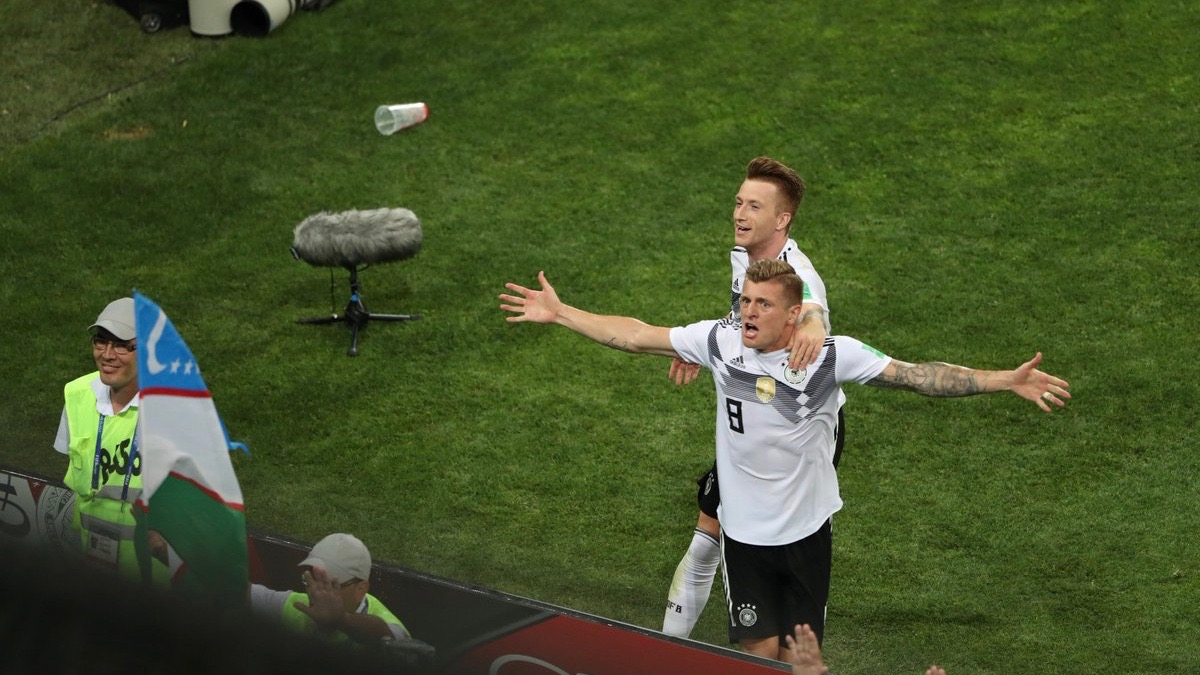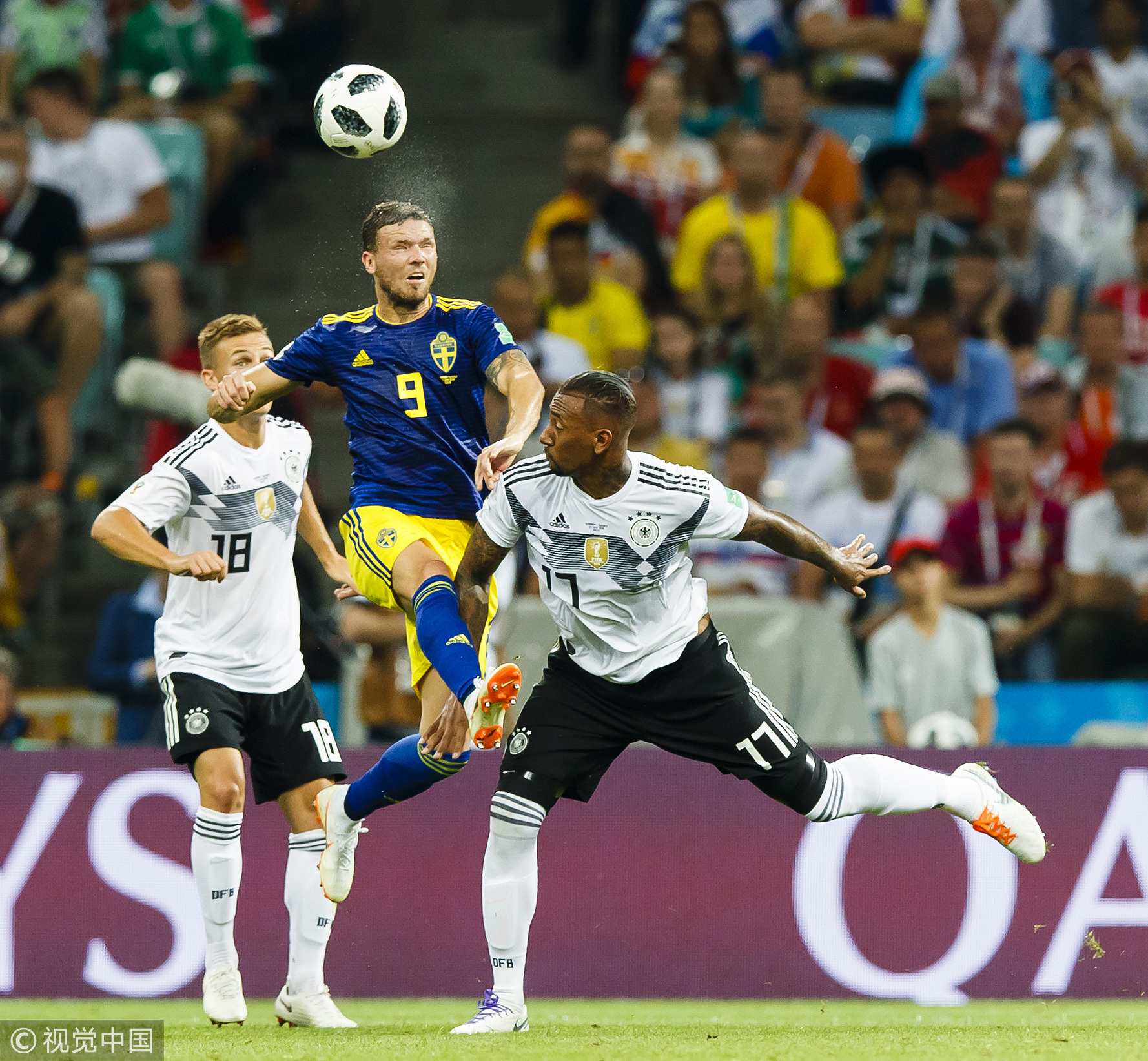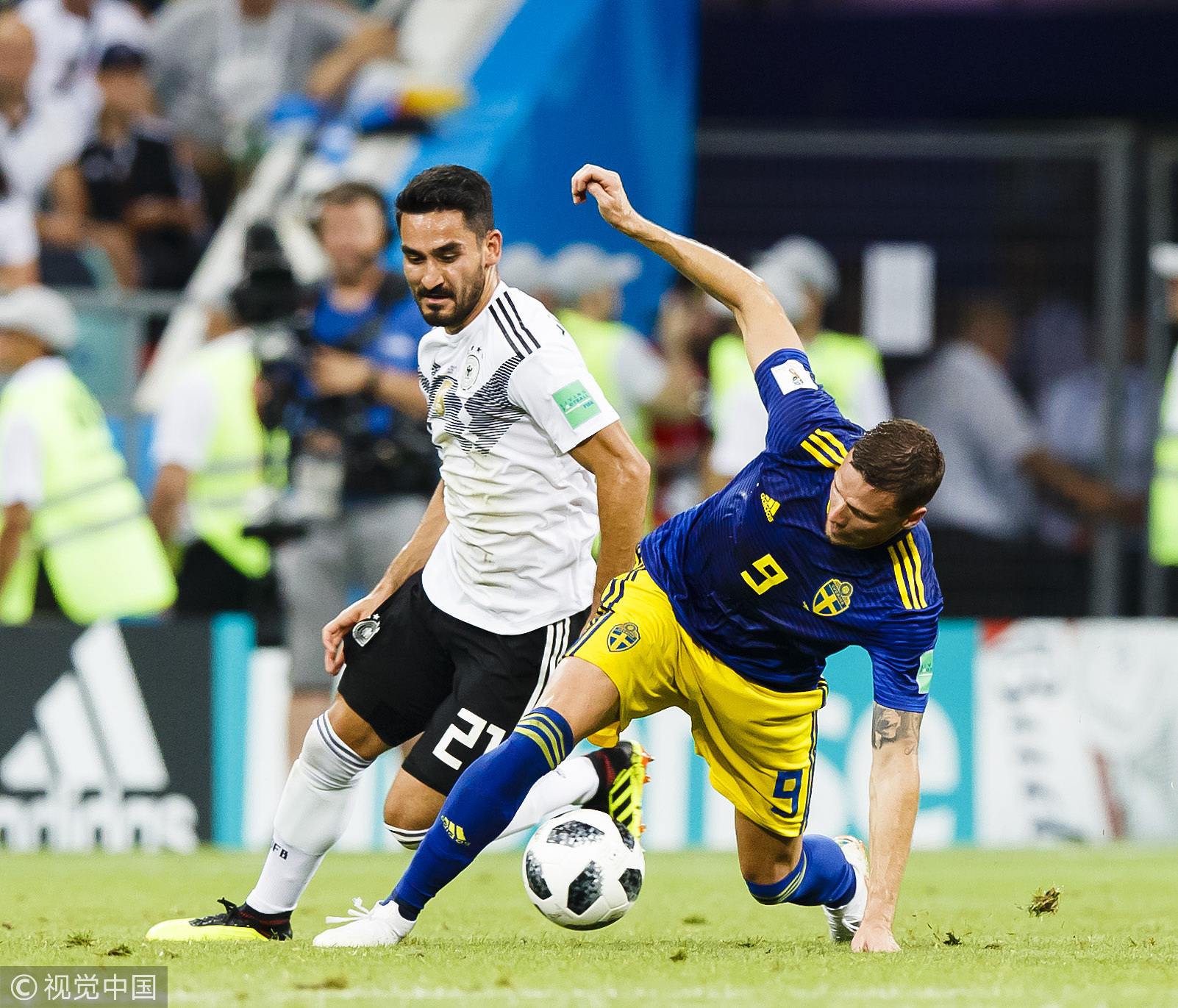
Sports
07:41, 24-Jun-2018
World Cup 2018: The war machine springs to life
Josh McNally

It’s impossible to deny Joachim Loew’s status as the mastermind behind the Germany team. Since he replaced Juergen Klinsmann, last seen with the national side shellshocked in the wake of the loss to Italy in the World Cup ’06 final, Germany were a gestalt that felt like it was always learning and adapting.
Losses in the Euros and World Cups always felt hard earned and came with incredible circumstances such as Puyol’s late header from a crowded box or Balotelli’s raw power.
That came to an undistinguished end at Euro 2016 when they were just outplayed by France. For the first time in a long time, they seemed vulnerable, and the departure of key players after both that tournament and Brazil 2014 left many wondering what was next for Die Mannschaft.
If the first two games of Russia 2018 are anything to go by, Loew doesn’t know either as, after the 2-0 loss to Mexico, he made absolutely no meaningful changes; Oezil started on the bench, and Mats Hummels was out, but everyone else looked, moved and felt the same against Sweden as they did against El Tri.

Joshua Kimmich #18 of Germany, Jerome Boateng #17 and Marcus Berg #9 of Sweden in a title during the 2018 FIFA World Cup Russia group F match between Germany and Sweden at Fisht Stadium on June 16, 2018 In Sochi, Russia. /VCG Photo
Joshua Kimmich #18 of Germany, Jerome Boateng #17 and Marcus Berg #9 of Sweden in a title during the 2018 FIFA World Cup Russia group F match between Germany and Sweden at Fisht Stadium on June 16, 2018 In Sochi, Russia. /VCG Photo
Barely fifteen minutes into the game, a stat popped up in the bottom-left corner of the screen: Germany had completed 122 passes, Sweden six.
Suddenly, it came into focus. The spine of the German team has been Bayern Munich since the days of Franz Beckenbauer and Karl-Heinz Rummenigge and, during the period building up to the World Cup win in Brazil, they were under the stewardship of Jupp Heynckes and Louis Van Gaal, coaches who prioritised an intense, grinding style of play that constantly worked towards the goal. Since then, Bayern played under Pep Guardiola, the master of the passing triangle, known for his focus on possession play and constant tinkering to get the perfect formation.
Working off this style of play is the only explanation of how Germany have played tactically so far. The back line of their 4-2-3-1 formation is so high up the pitch that it’s practically in the opponent’s half and their number nine, Timo Werner is less a striker than the sixth man in the midfield and this is apparent once the passing triangles have gone on for so long that they resemble passing dodecahedrons instead.
If it sounds familiar, then it’s because it’s exactly how they played against Mexico and Sweden already had the answers.
Just like Mexico, they’re fine, and on paper shouldn’t have been anywhere near as challenging to this Germany squad as they were - and just like Mexico, their first goal came on the break.
Capitalising on a lull in the action due to Sebastian Rudy getting swapped out early for Ilkay Guendogan after taking a genuinely accidental boot to the face, Viktor Claesson intercepted a shoddy pass from Toni Kroos, sprinted through the no man’s land that separates the German team from keeper Manuel Neuer and found Ola Toivonen - more of an out-and-out striker than anyone Germany has - who scored with a perfectly weighted chip.
And just like the Mexico match, Germany had no reaction. By the time the half-time whistle blew, they had played three halves, scored no goals and displayed no emotion about it besides for mild chagrin.
At halftime, however, someone must’ve realized that if it stayed like this, they were out and it wasn’t even five minutes into the second half before Germany were level.
Mario Gomez had replaced Julian Draxler, but nothing else had physically changed, only their energy had vastly improved.
It’s apt that a team that had settled into robotic predictability finally got their first goal through a scrappy effort.
Marco Reus essentially barrelled into the Sweden box to capitalize on Gomez’ fumble and sent it clattering into the goal off his upper shin-pad.

Ilkay Guendogan #21 of Germany and Marcus Berg #9 of Sweden battle for the ball during the 2018 FIFA World Cup Russia group match at Germany and Sweden at Fisht Stadium on June 16, 2018 in Sochi, Russia. /VCG Photo
Ilkay Guendogan #21 of Germany and Marcus Berg #9 of Sweden battle for the ball during the 2018 FIFA World Cup Russia group match at Germany and Sweden at Fisht Stadium on June 16, 2018 in Sochi, Russia. /VCG Photo
For the first time in this World Cup, it seemed like Germany were actually in it; their tiki-taka felt less like death from 1,000 passes and more like pinpoint maneuvering. Kroos was taking shots, Mueller was doing whatever he does and finding the target, even Werner was starting to look more like a classic nine too.
The only problem was Sweden, who always managed to get in the way.
This high pace with this lack of results could only go on for so long before frustration set in and, as always, the first to snap was Jerome Boateng.
In the space of exactly 10 minutes, he picked up two yellow cards for sloppy tackles, becoming the most topical punchline for “what’s black and white and red all over?’ And sending Germany down to 10 men.
As time ticked down, Loew again made his team top heavy and swapped out Jonas Hector for Julian Brandt.
The only thing worse than going on now, perhaps, is going into your final game knowing your fate isn’t your hands, so it made sense for the German coach to roll the dice - even if, again, it’s the same play he made in the loss against Mexico. It didn’t make a difference, and the clock wound down.
In the final minute of extra time, Werner was fouled on the edge of the box by Jimmy Durmaz. In an all-or-nothing move, Toni Kroos stepped up to take a free kick; too close to take a shot, he rolled it to Reus who held it in place as Kroos acted like the Sundance Kid and hit it perfectly in motion.
The ball curled in beautifully and made it 2-1 with seconds to spare. Sweden were stunned, and Germany were elated.
Their celebrations at taking the lead for the first time in over two whole games contained more vigor and energy than the previous 180-plus minutes. Hopefully, Loew learns from this and starts to put more "mensch than maschine" into his team’s game plan.

SITEMAP
Copyright © 2018 CGTN. Beijing ICP prepared NO.16065310-3
Copyright © 2018 CGTN. Beijing ICP prepared NO.16065310-3